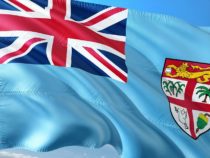Ghana has a beautiful and rich educational atmosphere that international students would flourish within. The country has multiple universities both public and private available for students from all over the global to attend. Students will be able to take a number of programs and courses of their academic choosing.
Universities in Ghana:
- University of Ghana
- Kwame Nkrumah University of Science and Technology
- Wisconsin International University College
- University of Education, Winneba
- University Of Cape Coast
- Ashesi University
- Central University (Ghana)
- University for Development Studies
- University of Mines and Technology
- Valley View University
- Presbyterian University College
- Methodist University College Ghana
- Ghana Communication Technology University
- University of Professional Studies
- Ghana Institute of Management and Public Administration
- Accra Institute of Technology
- Garden City University College
- Regent University College of Science and Technology
- All Nations University
- Knutsford University
- Catholic University college of Ghana
- Zenith University College
- African University College of Communications
- Christian Service University College
- KAAF University College
- Pentecost University
- University of Energy and Natural Resources
- Radford University College
- Regional Maritime University
- Tamale Technical University
- Ghana Institute of Journalism
- University of Environment and Sustainable Development
- Bagabaga College of Education
- Abetifi Presbyterian College of Education
- Adisadel College
- Prempeh College
- Korle Bu Nurses Training College
- Tamale, Nurses Training College
- Sunyani, Nurses Training College
- Kumasi Nurses and Midwifery Training School
- Offinso College of Education
- Ghana School Of Law
- Berekum College of Education
- Mampong Technical College of Education
- Kibi Presbyterian College of Education
- Komenda College of Education
Most students are shocked to find out there are so many colleges and higher education learning institutions in Ghana. However, Ghana has rapidly grown their education system within the last 20 years, giving students both domestic and international an incredible advantage to learn about studies that may not be readily available elsewhere.
Cost of Living for Students
Student living costs change in each country; however, every student must keep in mind a general budget they should follow month to month. Not only will the student be able to save, but this is a lifelong skill that they will heavily benefit from throughout their college career.
When it comes to living in a college residence, students should budget for between GH¢800 and GH¢ 1300. But if the student wishes to live off campus and instead live in a hostel or a private residence, they should create a budget that fits between GH¢1500 and 4000.
Tuition Cost and Expectance
International students can expect to pay per semester anywhere from $2,700 USD to $10,000 USD. Now this does heavily depend on if the student is attending a public or private institution. No matter what, private institutions will always have a higher tuition cost.
For a postgraduate degree in Ghana, students should without a doubt plan for the higher end of tuition, such as $10,000 USD per semester. Solely because postgraduate degree courses do cost more.
Languages Spoken in Ghana
There are around 50 or more languages spoken throughout the country, the main languages that students may come across are English, Akan, Akposo, Ewe, Dagbani, Dangme, Dagaare, Ga, Krobo, Nzema, Kasem, Gonja, Anii or Basila. There are several branches that the Ghana language belongs to, and students would heavily benefit if they were to learn one of these languages:
- Kwa languages (Akan, Bia, Guang in Tano; Ga and Adangme)
- Gbe languages (Ewe)
- Gur languages (Gurunsi, Dagbani, Mossi, Dagaare, and Frafra in Oti–Volta)
- Senufo languages (Nafaanra)
- Kulango languages
- Mande languages (Wangara, Ligbi)






